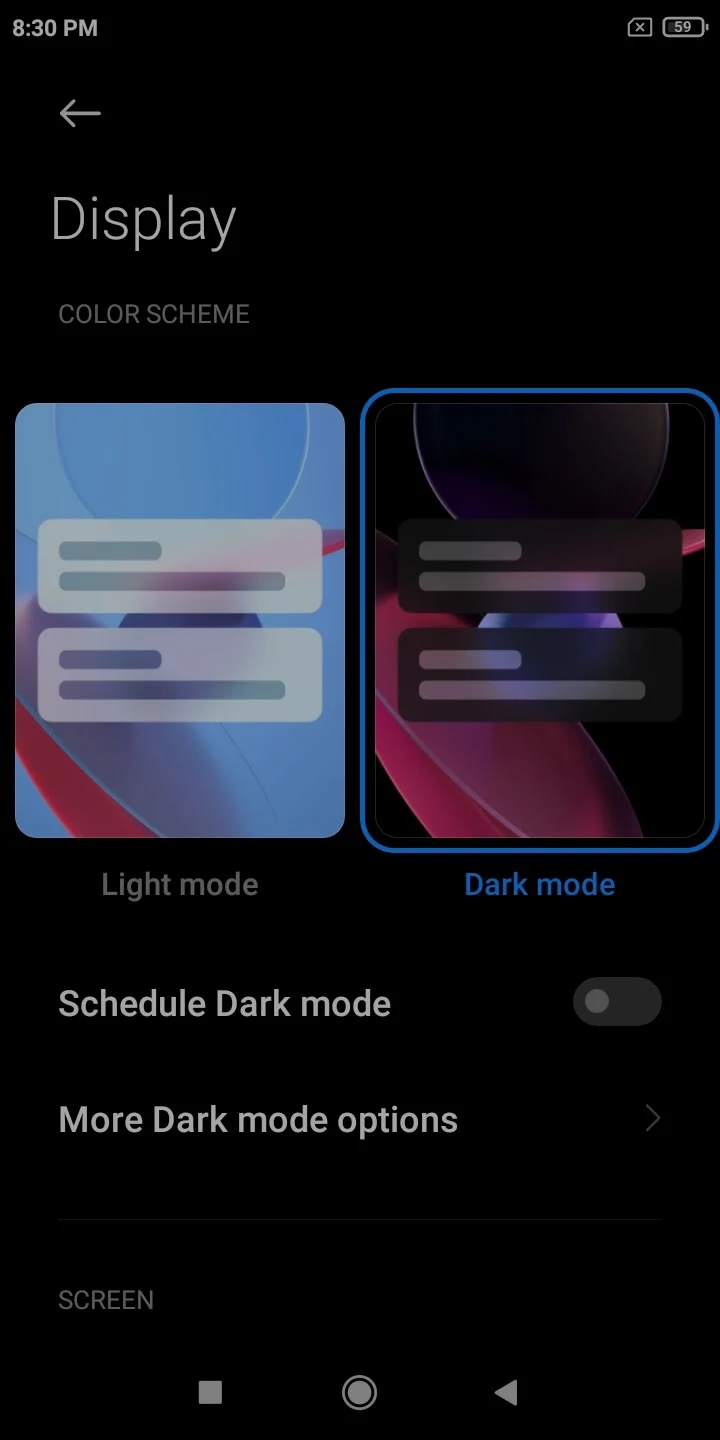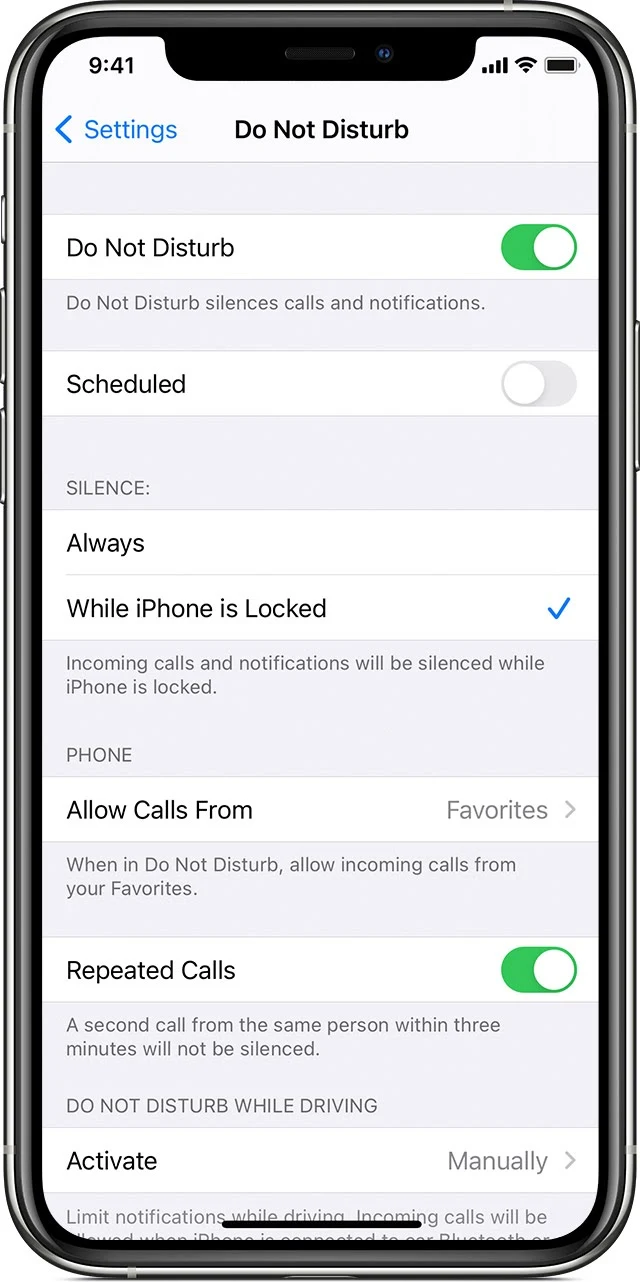As we become more and more dependent of our smartphones, devices tend to stay on day and night. Many people wonder if it’s bad to keep your phone on continuously.
Smartphones are designed to be on all the time, and turning them off and on frequently can cause device and component issues.
On the other hand, leaving your phone on all the time drains the battery faster, leading to more frequent charging and hence shorter battery life.
Leaving the screen on while charging overnight also has its cons. Read on to learn more.
- Should I leave my phone on day and night?
- Will turning off my smartphone every night affect its long-term battery performance?
- Should I switch off my mobile to let it rest?
- Is it bad for the environment to never turn off your phone?
- Is leaving your phone on all the time bad for your health?
- Is it good to turn your iPhone off at night?
- Should you leave your phone screen on overnight while charging?
Should I leave my phone on day and night?
Like many people, you may leave your phone powered day and night. From the smartphone perspective, that’s the way electronic devices are made to be used. But there are both pros and cons.
According to electronics experts, smartphone devices should be left on 24 hours a day. The process of powering off and on regularly over time puts considerable strain on the phone’s internal components. It takes some time for the OS to load and this can result in your device not starting or other failures.
There is no need to turn off your phone during daytime even after using it extensively for long hours. Just stop using it for some time to avoid it getting too hot. If it does, allow it to cool down and take out the casing if needed.
A few good reasons to turn off your phone
OS updates often require powering off and restarting the phone. These updates are required to protect against malware and provide new features and can’t be installed while the phone is running.
Also, devices that are powered by batteries have counters to aid the device predict the duration of the battery. Draining the battery down entirely to zero percent (for example once a year) helps the battery more accurately calculate its lifespan.
Finally, phones house many components like sensors and cameras, and processes like Google Play services are always running in the background even if the phone is idle. Turning on your phone can keep these from draining the battery too fast.
Will turning off my smartphone every night affect its long-term battery performance?
Batteries in phones have a limited life (typically 300 to 500 charge cycles) and degrade faster the more they are utilized.
Turning off your phone for 6 hours at night won’t help in preserving the battery, since you probably wouldn’t be using your mobile at that time anyway.
However, it can be argued that leaving the device on means the battery will discharge a bit at night so you’ll need to recharge earlier. Turning off your phone for 6 hours regularly does result in getting a longer time between charges. It reduces the need to charge your smartphone and results in fewer charging cycles.
Note that leaving your device plugged in is not a good idea, as your device will be charging up and discharging repeatedly, using up cycles.
Should I switch off my mobile to let it rest?
You can power off your mobile once every week and let it rest for a minute or so before turning it back on as it helps your phone to operate more smoothly, get rid of any crashes or issues, and help retain memory.
Turning off your phone helps to get rid of accumulated app data from the phone which slows down the phone. On restarting you can feel that the phone is faster and smooth in performance.
That said, some experts argue that turning off smartphones won’t necessarily benefit the phone and should not become a routine. For them, the more you use your phone, the quicker the phone components will wear out, no matter what.
Mobile OSs, unlike computer OSs, are very good at isolating memory leaks that drain system resources at the software level. So, simply quitting your apps can have the same benefits as restarting your phone.
See also: Is it bad to charge your phone while using it?
Is it bad for the environment to never turn off your phone?
From an environmental aspect, in contrast to computers, smartphones are not always plugged in, so it could be argued that turning a smartphone off doesn’t save much power.
Leaving your phone on all the time, however, still accounts for increased energy usage. If your mobile is left on at night when you unlikely to use it, this will drain the battery and force you to charge the mobile more often.
As your phone’s battery degrades slightly with every charging cycle, the increasing charging cycles also lead to a decrease in the phone’s lifespan.
The outcome of this process is that people usually throw away their existing phones sooner and buy new ones. As the old phones result in waste generation and new phones are made using polluting production processes, it can be argued that leaving your phone on has a negative environmental impact.
Is leaving your phone on all the time bad for your health?
There are a few things that can affect health when your phone is on continuously:
Source of radiation
Smartphones are a source of radiation, particularly blue light, when powered on. While there is no conclusive agreement of their consequences, it’s advisable to keep your phone turned off as you sleep.
When in airplane mode, smartphones still emit some radiation though it’s lower than when they are in normal mode.
Eye and other health problems
Extensive use of the smartphone can cause dry or watery eyes and lead to vision problems or headaches. Many people use their phones before going to bed while the phone brightness is set to maximum which can impact sleep.
Increased stress
Leaving your phone on all the time may also lead to stress and even depression. For most people, it is advisable to go offline and turn off your phone at night to reduce stress and anxiety.
Recommended: use dark mode and filters
If you use the phone at night or in low-light conditions, turning on dark mode on your Android device or iPhone can help to reduce strain on your eyes and the effects of radiation.

You can also turn on blue light filters on your device to reduce blue light emissions at night. The flip side of using dark mode and filters, however, is that these can cause eye focus problems.
Is it good to turn your iPhone off at night?
Turning off your iPhone at night has its advantages and disadvantages. According to Apple experts, turning off the iPhone at night helps to prolong battery life which in turn keeps your iPhone in good condition.
That said, most users keep their iPhones on all the time and also keep them on charging all night.
The arguments discussed earlier for electronic devices to be kept on also apply to iPhones.
An alternative to turning off your iPhone is to use the Do Not Disturb feature at night. This disables all battery-consuming sensors and also allows you to allow specific contacts to disturb you if necessary.

See also: How Do I Make My iPhone Turn Off Automatically At Night?
Some good reasons to turn off iPhone
- Your iPhone gets too hot and you need to cool it down.
- Your device fell into the water and you want to minimize water damage.
- You want to save the battery life of your iPhone.
- You don’t want to be traced.
- You are facing network errors or other issues and need to turn off or reboot to fix them.
- You have completed data transfer from your iPhone to a new mobile and don’t want to use the iPhone.
Soft and hard reset
It’s advisable that you perform a soft reset on your iPhone once every week. It can be done by simply turning off and on your phone and will help to clear the issues such as your phone slowing down or becoming unresponsive.
If your problems are not resolved or a troubling app prevents you from performing a soft reset, then you can go for a hard reset. For this, press and hold the sleep/wake button and the volume down simultaneously and then release them when the Apple logo appears.
Note that the process of soft and hard reset may depend on your iPhone model and usually no data will be lost.
Should you leave your phone screen on overnight while charging?
Leaving the screen on overnight while charging has some cons:
Overheating
If you leave the screen on there is a strong possibility that the phone will generate heat which in turn is not good for the battery. The lithium-ion batteries in smartphones are sensitive to heat and degrade and age faster due to overheating.
The maximum charge can ruin the battery
If the screen is on and the charge reaches and remains at 100 percent, that can also lead the battery to degrade faster. What this means is that the battery will suffer from stress and its capacity can also drop.
Screen burn-in and wear out
If your phone has an OLED or AMOLED screen, there is a risk of burn-in. It’s the image retention that occurs when an image is left on the screen for a long time. There is also a chance of wear out and spots on the screen over time.

